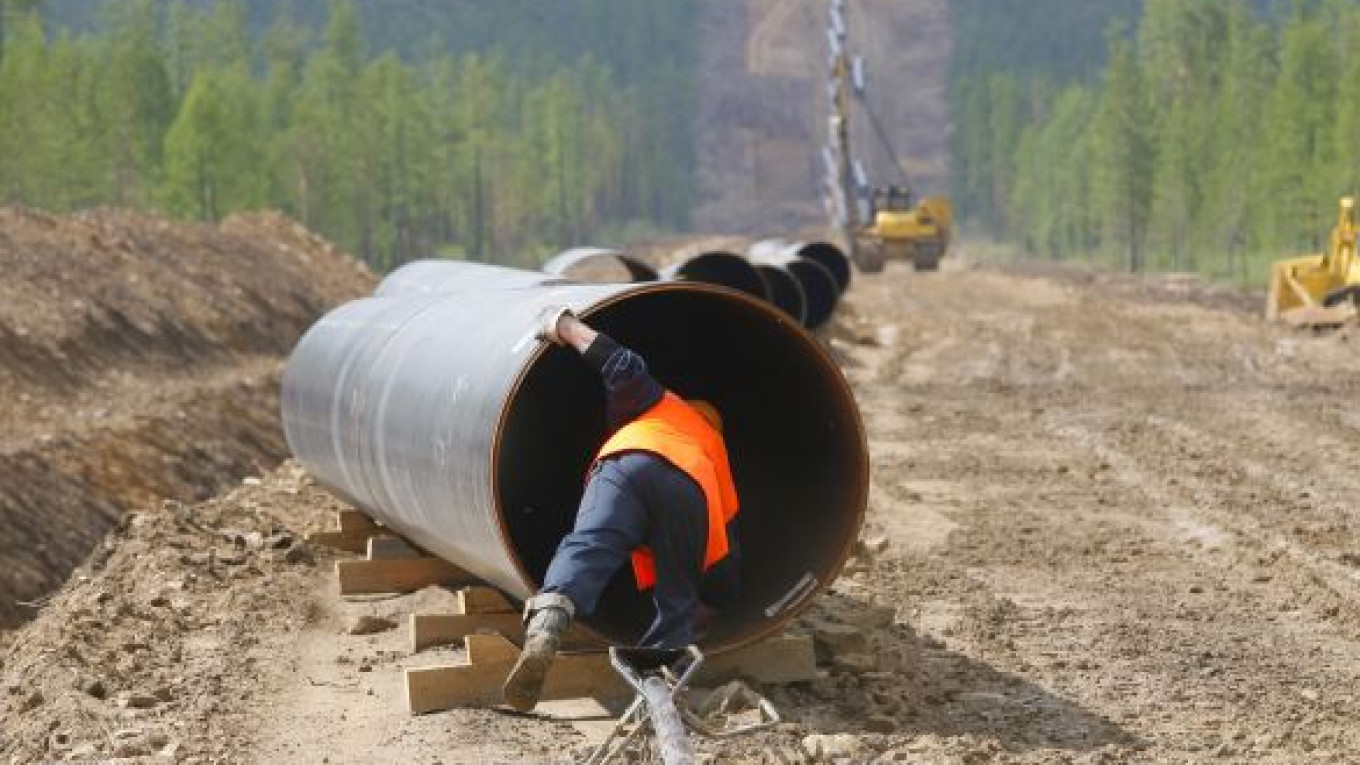Two oil barons have escalated a battle for influence in the lucrative energy sector by writing to President Vladimir Putin to complain about each other’s policies, spotlighting a deepening rift between some members of his inner circle.
This turf war risks upsetting Putin since the president can ill-afford open squabbling among heavyweight supporters as he seeks to reassert a tight grip on power following major street protests against him in late 2011 and 2012.
The letters were sent by Igor Sechin, head of top crude producer Rosneft and long a close aide to Putin, and Nikolai Tokarev, president of oil pipeline monopoly Transneft.
Sechin and Tokarev boast long-standing ties with Putin and long benefited patronage of the president, the ultimate decision-maker in the world’s largest oil-producing country.
But a head-on tussle could turn both oil magnates into a liability for the president if he sees his dominance at stake. He has already shown his displeasure by asking Rosneft to explain the high price of fuel.
Sechin’s eight-page letter accused Transneft of charging too much to transport oil. “The current system of Transneft’s transport tariff system is not transparent and does not suggest reduced tariffs for oil companies, which invest in this region and supply the Far East region with oil products,” Sechin said.
Tokarev responded in a letter to Putin and Deputy Prime Minister Arkady Dvorkovich, denying Transneft’s tariffs had contributed to a rise in gasoline prices.
“At the moment, the share of costs for oil transportation via pipeline is 4.7 percent in 1 liter of gasoline in the Far East [of Russia],” he wrote.
Rosneft plans to upgrade its Far Eastern Komsomolsk and East Siberia’s Angarsk refineries and build a petrochemical plant at the Pacific port of Nakhodka, which Transneft fears would divert flows from its Pacific port of Kozmino.
Tokarev has criticized the plans, saying the Nakhodka plant would need massive investments and construction of a pipeline with estimated costs of 250 billion rubles ($7.58 billion).
The two firms have tangled before over Rosneft’s plans to expand refining in the Far East and build new pipelines.
Sechin has long been one of Putin’s most trusted aides while Tokarev, Vedomosti reported, was Putin’s boss when he worked as a KGB spy in Dresden in the old East Germany. They have been at loggerheads for years, including over Rosneft’s drive to boost oil supplies to China.
Both Rosneft and Transneft formally deny any strife between their CEOs.
Since taking over Rosneft last year, Sechin has made it the world’s No. 1 listed oil producer by acquiring British-Russian oil company TNK-BP for $55 billion, securing landmark deals with Western majors to develop Arctic riches and reaching a huge $270 billion agreement to double oil supplies to China.
Sechin’s drive to boost his clout over the strategic oil and gas sector, which generates more than a half of state revenues, has drawn criticism from some industry executives and experts.
Putin has carved out a system where power is concentrated in the hands of the president with influence evenly distributed among several clans, none of them enjoying special favor from the Kremlin to avoid serious challenges to its writ.
Sechin and Tokarev could be at risk by taking on the other, depending on how Putin views the situation.
“Many [observers] think that sooner or later this won’t have a happy ending for Sechin,” said Sergei Zhavoronkov of the Gaidar Institute for Economic Policy.
A Message from The Moscow Times:
Dear readers,
We are facing unprecedented challenges. Russia's Prosecutor General's Office has designated The Moscow Times as an "undesirable" organization, criminalizing our work and putting our staff at risk of prosecution. This follows our earlier unjust labeling as a "foreign agent."
These actions are direct attempts to silence independent journalism in Russia. The authorities claim our work "discredits the decisions of the Russian leadership." We see things differently: we strive to provide accurate, unbiased reporting on Russia.
We, the journalists of The Moscow Times, refuse to be silenced. But to continue our work, we need your help.
Your support, no matter how small, makes a world of difference. If you can, please support us monthly starting from just $2. It's quick to set up, and every contribution makes a significant impact.
By supporting The Moscow Times, you're defending open, independent journalism in the face of repression. Thank you for standing with us.
Remind me later.






